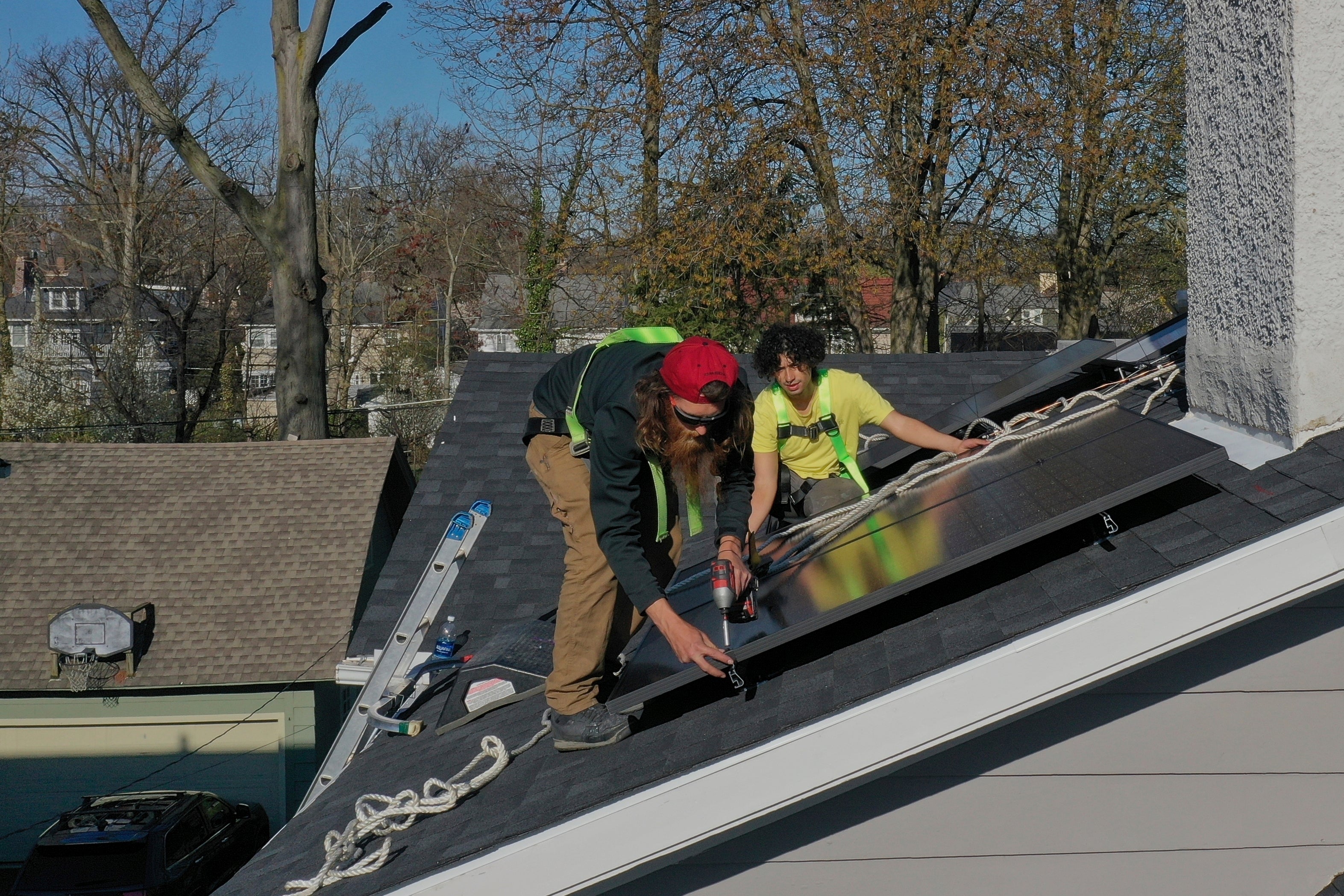If you’ve invested in the best solar panels for your home, keeping them clean is one of the simplest ways to protect your investment and maintain peak performance. While Britain’s frequent rain does much of the work for you, an occasional clean can make a noticeable difference, especially during dry spells or pollen-heavy months.
Dirt, bird droppings, leaves and other debris block sunlight from reaching your panels, reducing output and slowing your payback period. Considering the cost of solar panels and how long it takes to recoup your investment, regular maintenance can help ensure your system continues to deliver strong returns. If you’re still wondering if solar panels are worth it, proper care is one way to make sure they are.
How often do I need to clean solar panels?
Many factors determine the frequency of cleaning solar panels. If there are no nearby pigeons to foul your array, if the panels are at an angle and if it rains regularly, then you may not need to clean them very often.
But if pollen, dust, bird droppings and dry spells plague them, a regular wash will be needed. Panels at a low angle will also accumulate leaves and other detritus and need a rinse. If you notice bird droppings on your solar panels, you will want to clean this as soon as possible. Bird droppings are acidic and can corrode the surface of your solar panels if left too long.
As a general rule, you should aim to wash your solar panels with a soft rag and soapy water every six months. If you can stick to this schedule, it makes it easier to keep them clean through the intervening months, where a simple run of the hose will shake loose any dirt or debris.
If your solar panels are roof-mounted, a hose-down is probably the safest and easiest way to clean your array, since with decent water pressure you will not need to go anywhere near them.
Before you do anything, though, check the documentation that came with your panels for cleaning guidelines. The coatings on panels may differ, and may mean that using particular cleaning agents is a bad idea. Soap and water should be fine, however.
Do I need a professional to clean my solar panels?
Probably not. But if you want to, and they are especially dirty, then there are companies that will do that, performing a similar job to window cleaners and using similar long-arm tools to clean them with soapy water. If you have a particularly high roof and are not confident on ladders, this could be a good option.

Prices will vary depending on where you are in the country, so get a few quotes. According to the Energy Saving Trust, prices can range from £20 to £200 depending on array size and location.
How do I clean my solar panels?
If you want to learn how to clean solar panels properly, start by switching system off. Then, use this opportunity to have a general check their condition, looking out for any damage to cables or other electrical contacts. If you see any, fix this before exposing electrical components to water. If you’re ready to proceed, follow these simple steps:
- Switch off your system. Before doing anything else, turn off your solar panel system according to the manufacturer’s instructions. This ensures safety while cleaning.
- Inspect the system. Take a few minutes to check the panels, cables, and any visible connectors. If you spot damage or exposed wiring, don’t proceed—call a professional instead.
- Choose the right tools. Using a long-handled brush with soft bristles is best for avoiding damage to the cells in your solar panels.
- Prepare your cleaning solution. Use mild soap mixed with water. Avoid washing-up liquid, as it can leave a residue on the panels.
- Gently scrub the panels. Use the brush to remove any dust, dirt, bird droppings, or pollen. Take care not to apply too much pressure.
- Rinse thoroughly. Use a garden hose with moderate pressure to rinse the panels clean. Avoid using a pressure washer, as it could damage the cells.
- Dry with care. Use a soft cloth, squeegee, or a solar panel wiper to remove excess water and prevent water spots.
- Repeat as needed. Depending on your environment, repeat this process every few months or when performance noticeably drops.
This is one of the safest and most effective methods when learning how to clean solar panels at home.

What is the best thing to use to clean solar panels?
The safest way to clean solar panels is with soft water, a non-abrasive sponge or cloth, and a telescopic pole. Avoid detergents, pressure washers or abrasive pads, as they can damage the surface coating. In most cases, a bucket of lukewarm water and a gentle wipe are enough to remove dirt and dust. For hard-to-reach roofs or heavy buildup, consider hiring a professional solar cleaning service equipped with water-fed poles and purified water systems.
Do you need to turn off solar panels before cleaning?
Yes. Before cleaning, always switch off your solar system using the isolation switches on both the DC (panels) and AC (inverter) sides. This prevents any risk of electric shock or system damage. Never touch connectors or wiring, and avoid cleaning in wet or stormy weather. If your panels are mounted on a steep or high roof, it’s best to use a professional cleaner, as they will follow safety protocols while maintaining your system’s warranty coverage.
Things to avoid when cleaning your solar panels
Use common sense. Don’t stand on the panels, don’t stand on a pitched roof that’s not designed to take your weight, and don’t use a power washer, as this could damage your panels. These tips, while simple, will go a long way to help you avoid damage and stay safe as you figure out how to clean solar panels effectively without professional help.
What else should I be doing for maintenance?
As well as having an annual clean and inspection for damage, both of which you can do yourself, it is worth having a professional look at your panels every five years or so to catch any issues before they become more expensive. This could include:
- Cracks in the panels
- Fraying cables
- Loose fixings for the panels
- The health of your inverter
These checks could form part of your warranty, so make sure to have a look at that to see how often your system needs to be serviced.

.jpeg)










.jpeg?trim=69,0,64,0&width=1200&height=800&crop=1200:800)








.jpeg)














 English (US) ·
English (US) ·